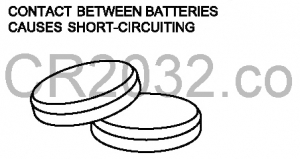CR2032 Battery Safety Risks and Health Concerns
Unlike its predecessors, the lithium battery is one of the most environmentally friendly sources of portable electric power.It can be thrown away in the trash with no risk of acid leaking into the water supply, and it never leaves any reactive materials behind once its charge has depleted. But although lithium batteries are safe for the environment, they still pose a safety risk when used improperly.
Lithium Batteries Are Harmful When Swallowed
The CR2032 battery, and other button-sized lithium batteries, are small enough to be swallowed. Worse yet, they are shiny, and they often appeal to children. Ingestion of CR2032 batteries must be treated immediately! The acid can leak and cause small holes in the stomach or intestinal cavities.
Lithium Batteries Can Explode When Short Circuited
Many lithium batteries are designed to deliver a big current, so they can heat up pretty fast when they are short circuited. Avoid placing CR2032 batteries on top of one another or near any metals that could cause them to short. In a worst case scenario, the batteries will explode. In a best case scenario, nothing happens because the batteries use thermal and overcurrent protection to stop explosions and overheating from happening.
Aside from these two concerns, lithium batteries are some of the safest batteries around. Many of the consumer end batteries have built-in safety mechanisms to stop them from exploding, but it’s still important to pay attention and handle them safely.

